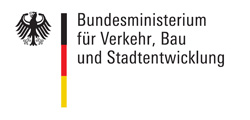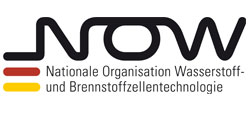Model Region Electric Mobility PMC: Modul 2
Intelligent Integration of Electric Mobility
The project Intelligent Integration Electric Mobility includes the acquisition, management, and evaluation of data from fleet tests, user experience, and secondary sources collected in the context of electric mobility projects. The development of different instruments for the interpretation and visualization of this data base is also part of the project.
| Duration: | 01.10.2009 till 30.09.2011 |
| Donee: | German Research Center for Artificial Intelligence GmbH |
| Sponsor: |
Federal Ministry of Transport, Building and Urban Development
NOW GmbH |
| Grant number: | grant no.: 03KP542A This project is funded by the German Federal Ministry of Transport, Building and Urban Development. The program coordination is carried out by the NOW GmbH National Organization Hydrogen and Fuel Cell Technology. |
| Partner: | Fraunhofer-Institut für Fertigungstechnik und Angewandte Materialforschung(IFAM); Senator für Umwelt, Bau, Verkehr und Europa des Landes Bremen (SBUVE) |
| Application Field: | Electric Mobility |
| Related Projects: |
Model Region Electric Mobility PMC: Module 3
Fleet Tests (focus on commercial user)
(03.2010-
09.2011)
Model Region Electric Mobility PMC: Module 3
Fleet Tests (focus on private user)
(03.2010-
11.2011)
PLS Bremen-Oldenburg
regional project center of the Model Region Electric Mobility Bremen/Oldenburg
(09.2010-
08.2014)
|
Project details
Aims of the project
- Acquisition of „electric mobility data “in the context of fleet tests in the model region Bremen/Oldenburg
- Identification of the current standard
- Evaluation of the data collected
- Design and implementation of instruments required for surveillance and evaluation purposes concerning different target groups
- Simulation based on the data collected
- Revitalization of the entire model region
As a result of Intelligent Integration Electric Mobility, an E-Mobility data collection infrastructure was started. The entire system is composed of several components and uses current standards of communication technology.
Data in the vehicles are collected with so-called data loggers which are integrated into the CANBus systems of the vehicles and thus record a multitude of running data. The generalized intersection contains the GPS position, state of charge, voltage, current, and temperature of the battery, and velocity. Data transfer is realized via the GMS net through tunneled machine-to-machine communication, thus ensuring at the same time a bi-directional communication and, as a result, remote vehicle maintenance. Currently, six different vehicles types in a fleet of 42 vehicles are monitored.
The project Intelligent Integration Electric Mobility centers around a comprehensive infrastructure in terms of data collection and data processing, offering a platform for numerous evaluations and analyses with methods of artificial intelligence. Furthermore, basic instruments for preprocessing, provision, and interpretation of data was implemented.




